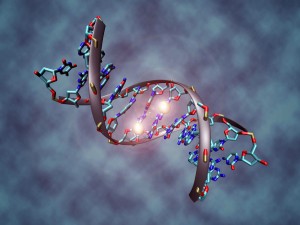Holocaust Exposure Induced Hereditary Epigenetic Changes

The holocaust experience has caused the survivors´descendents to accumulate epigenetic changes and mental distress like the ones of their parents. Rachel Yehuda´s research team at Mount Sinai, New York, has shown that sufferers of the Holocaust and their descendents share similar methylation patterns at specific genomic sites. Both generations suffer from similar psicological trauma, probably associated to the methylation pattern. The finding has been published in the journal Biological Psychiatry.
Epigenetics studies changes in gene expression without changes in the genetic sequence. Differential gene expression happens by virtue of chemical tags on the genes, like acetyl or methyl groups. It has been proved in animal models that these chemical tags can be passed on from one generation to another. This could have profound implications, as epigenetic modifications are influenced by the environment. this means that lifestyle of a parent -food, smoking, stress- could affect its descendence. This transmission has been finally demonstrated in humans. Yehuda´s team conducted epigenetic studies on 32 Jewish men and women who had witnessed or experienced extreme stress and/or torture during the second world war. Specifically, the researchers studied FKBP5 methylation. FKBP5 is a gene that regulates stress hormones, which are affected by trauma. They also studied FKBP5 in their children, known to have increased likelihood of stress disorders. The results show correlated FKBP5 methylation levels in both generations, as well as similarly elevated cortisol levels. Yehuda concluded that the epigenetic changes in the children could only be attributed to Holocaust exposure in the parents.
This is the first account of transmission of trauma to descencence by epigenetic changes. This is a non desirable effect of a defense mechanism: the evolutive meaning could reside in tuning the offspring´s genes, preparing them to cope with a especially stressful environment.

